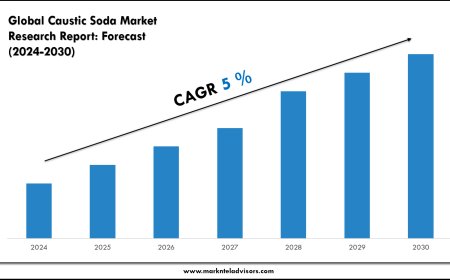ISO 9001 Certificate: Why It Still Matters in Manufacturing More Than People Admit
A proper ISO 9001 certificate shows your entire process—not just your product—is reliable. From handling raw materials to managing suppliers, calibrating machines, onboarding employees, and yes, responding when something inevitably goes sideways. It’s all connected.

Lets be honestsome folks roll their eyes the second they hear ISO 9001 certificate. Like it's just another bureaucratic badge slapped onto a wall to keep auditors happy. But if you're in manufacturing, especially in heavy industry or high-precision sectors, this isnt just a shiny sticker. Its the invisible skeleton that keeps your quality systems standing tall.
This isnt another how-to. Were not rattling off clause numbers or quoting pages from the standard. This is a gut-check. Why does ISO 9001 still matter? Why does it make a difference for people on the floor, not just the folks in the boardroom?
Lets break it down, piece by piece, like were walking through the shop floor together.
Qualitys Not Just About What Ships Out the Door
Heres the thing: most people think quality equals finished goods. You know, the no-scratches, no-errors, everything-in-spec kind of outcome. Thats only part of the story. ISO 9001 looks at quality like an engineer looks at root cause. It asks: how did you get there? Whats the system behind the product?
A proper ISO 9001 certificate shows your entire processnot just your productis reliable. From handling raw materials to managing suppliers, calibrating machines, onboarding employees, and yes, responding when something inevitably goes sideways. Its all connected.
And when its not? Thats when costs skyrocket. Not just reworkthink customer churn, regulatory drama, and reputational damage that sticks longer than anyone wants to admit.
But WaitDoesnt Everyone Have It?
Thats the myth. People love to say, Well, our competitor has an ISO 9001 certificate too. Like it cancels yours out. But thats like saying all chefs follow a recipe, so the food must taste the same. You know thats nonsense.
How you apply the ISO 9001 standard separates leaders from followers. You can shove documents into a binder and call it a dayor you can embed the principles into your daily ops. Big difference.
Youve probably seen it in the wild: Two companies, both certified. One has clean dashboards, alert operators, tight supplier tracking. The other? Paper checklists and chaos during changeovers. The certificates the same. The outcomes? Not even close.
ISO 9001 Doesnt Slow You DownIt Makes You Faster (Eventually)
Okay, heres a truth manufacturers whisper behind closed doors: implementing ISO 9001 feels like a slog at first. Youre documenting processes that everyone already knows, reviewing procedures people swear theyve followed for years, and attending audits that seem designed to catch you slipping.
But heres where it shiftsonce your system's humming, everything moves smoother.
-
Fewer stops for rework
-
Faster changeovers because everyone knows the drill
-
Fewer supplier disputes (because youve got the records to back it up)
-
Lower training overhead since SOPs actually make sense
You spend less time putting out fires and more time building things right the first time. And isnt that the dream?
Its Not Just for the Big Guys
Theres this weird misconception that ISO 9001 is for global conglomerates with whole departments dedicated to compliance. Nope. Small and mid-sized manufacturers have more to gain. Why? Because structure protects agility.
Say youre running a 50-person shop. Youve got legacy machines, lean teams, and high customer expectations. One mistake can set off a domino effectmissed deliveries, tight margins blown, trust eroded.
The iso 9001 sertifika acts like a stabilizer. It helps you grow without the wheels falling off. You're not adding red tapeyoure building guardrails. And when that next RFP asks for your quality credentials, youve got the answer ready before they finish the question.
The Real Value? It Forces Conversations Youve Been Avoiding
You ever sit in a meeting and hear something like, Weve always done it this way? ISO 9001 doesnt tolerate that. It asks why. Over and over. And thats where growth happens.
Getting certified forces teamsproduction, QA, purchasing, even HRto talk to each other. Its not always comfortable, but its necessary. Youll question handoffs, evaluate risks you didnt know existed, and sometimes realize the root cause isnt the machineits the training gap no one wanted to address.
And sure, that can be messy. But its real. And real change only happens when you dig into the mess.
Is the Audit a Pain? Sometimes. Is It Worth It? Absolutely.
Lets not sugarcoat it. Third-party audits can feel invasive. Someone shows up with a checklist and starts poking around like they own the place. Youve got operators who get nervous, supervisors who get defensive, and that one person who forgot to fill out the form from last week.
But a good audit isnt out to get you. Its there to sharpen your systems. Think of it like a pit stop in a race. The auditors the crew checking your tires and topping off your oil. Sure, they might call out a leakbut wouldnt you rather catch that before the next lap?
Over time, those audits start to feel less like an inspection and more like a tune-up. You prep smarter, your team gets sharper, and your quality system becomes something you actually trust.
Customers Are AskingAnd Not Just Politely
Lets get practical. More procurement teams are requesting proof. They want to see your ISO 9001 certificate before they consider your bid. Why? Because it reduces their risk. Its a trust signal.
And it's not just the big automakers or aerospace firms anymore. Smaller OEMs are following suit. They dont have time for surprises or inconsistent output. Your certification says, Weve got systems. We care about getting it right.
And if youve got a competitor thats cutting corners? That certificate might just tip the scales in your favor.
A Word on CultureBecause Its the Hardest Part
Processes are easy. People? Not so much. You can have flawless documentation and still struggle if your team doesnt buy in.
Thats why ISO 9001 only works when leaders walk the talk. When shop supervisors use the same processes they preach. When quality isn't a departmentits a mindset.
Its in the way a machinist double-checks a fixture. The way a warehouse clerk flags a mislabeled pallet. Those moments arent in the manual, but theyre what the ISO 9001 certificate represents: consistency born from care.
So if you're chasing certification just to hang a frame in the lobby, save your money. But if you're ready to embed quality into your culture? Then its a game worth playing.
The Paper Trail That Actually Helps
One of the unsung benefits? Traceability. When something goes sideways (and it willbecause life), having a system to trace back materials, steps, and decisions is priceless.
-
You catch mistakes faster.
-
You defend your work during disputes.
-
You train new people without throwing them into chaos.
Suddenly, documentation isnt a burdenits backup.
And if your industrys under scrutinylike food, pharma, or defenseits more than backup. Its your shield.
So, Whats the Catch?
Heres the kicker: ISO 9001 only works if you use it. Plenty of companies get the certificate and shelve the system. They treat audits like fire drillspanic, clean up, smile for the camera, then forget it all next week.
Thats not how you build a resilient business. Use the framework. Revisit the processes. Make them breathe.
And if something stops making sense? Change it. ISO 9001 doesnt want rigid conformityit wants thoughtful consistency. Theres a difference.
Last Thought: Quality Is QuietUntil It Isnt
You know when ISO 9001 really proves its worth? When no one notices. When orders ship on time, defects stay low, and customers just keep coming back without a fuss. Thats the sound of a system doing its job.
But the second something breaksa part fails, a shipments late, a process hiccupsthats when everyone starts asking about quality. And thats when your ISO 9001 certificate goes from background noise to front-line defense.
So if youre considering certification, or maybe thinking its time for a refresh? Dont do it for the certificate. Do it for the confidence it bringsto you, your team, and every client you serve.
Because in manufacturing, consistency isn't just nice to have. Its everything.










































